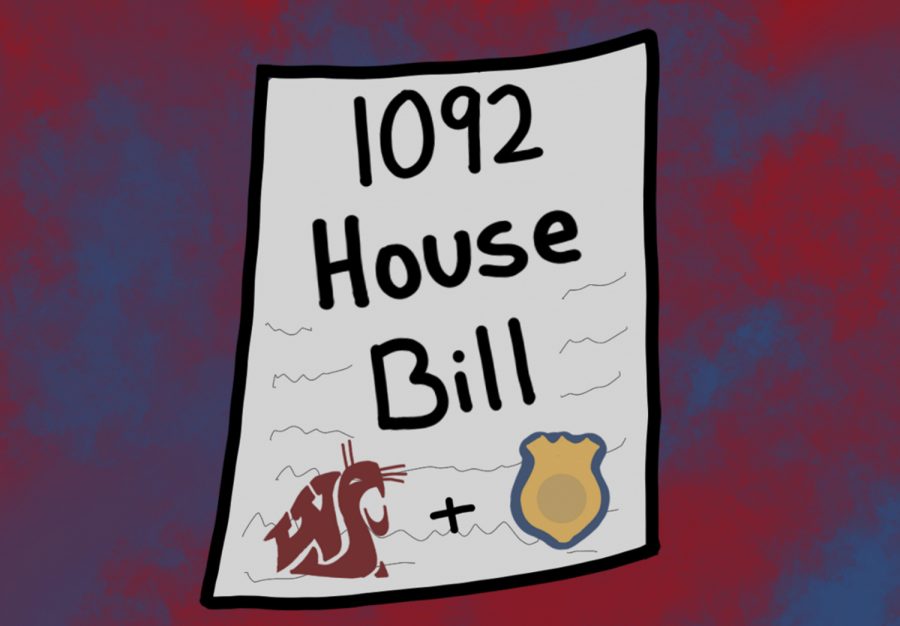WSU considered in bill for greater law enforcement transparency
House Bill 1092 designed to standardize data collection from law enforcement, understand factors contributing to use of force
There is no predicted timeline for when a university will be selected or when work can begin because the bill is frequently being adjusted.
February 11, 2021
WSU is being considered to be the university entity on a bill for transparency in law enforcement.
The Washington State Office of the Attorney General approached WSU last fall, asking it to be the university entity on House Bill 1092. The bill will require the reporting, collecting and publishing of information regarding law enforcement interactions with community members, said Chris Mulick, WSU director of state relations.
The bill is designed to standardize the collection of data from law enforcement, said David Makin, WSU associate professor of criminal justice and criminology. People will be able to download data online to see where use of force has increased.
“If we were able to create this database in Washington, we would be the first state to have a centralized and standardized data collection system for use of force and other types of police data — for example, calls for service,” he said.
Makin said the bill will make it possible to understand the different factors that contribute to police officers’ use of force, like certain legislation that passed.
As of a week ago, WSU is no longer the main entity on the bill, Mulick said. The Senate Law and Justice Committee put out a bid to see what proposals they will get from a broader scope of universities.
The advisory board in charge of the bill will select a university, he said. There is no predicted timeline for when a university will be selected or when work can begin because the bill is frequently being adjusted.
Law enforcement agencies in the state will report to the chosen university entity with the collected data they have, according to the bill.
“[The bill] started out as just trying to get data points on use of force and on occasions in which police officers have used use of force,” Mulick said. “Now it’s much larger than that. It’s taking into account traffic stops and officer disciplinary actions and all kinds of different things.”
WSU is still being treated as the chosen entity because, without a named entity, the cost cannot be calculated and the legislature cannot determine how to fund the bill, he said.
Depending on how many changes are made to the bill, WSU may decide not to bid on it because it may be too expensive, Mulick said.
“This whole notion of [the bill] being put up for bid is really only a week old,” he said. “So what is the bill gonna look like a week from now? I have no idea.”
Representatives from law enforcement and citizen groups have been weighing in on the bill, Mulick said. Their different perspectives and ideas keep changing the bill.
When the bill was strictly about use of force, it was not as expensive. Now the scope of work has been expanded, increaing the cost to fund the bill, he said.
“You get later in the session and budget writers decide we can afford some of this but not all of it,” Mulick said, “so then all of a sudden the bill starts getting skinny again.”
The bill cannot be put into action until a lead university is named, he said. Work will not be able to begin until at least July 2022.
House Bill 1092 is a very difficult bill to execute, Makin said. It is resource intensive, expensive and time consuming. However, there is a call for greater transparency in policing across the country.
“If Washington state were to pass this, we could be the leader in helping other states implement these types of broad, standardized, centralized data collection efforts,” he said.










